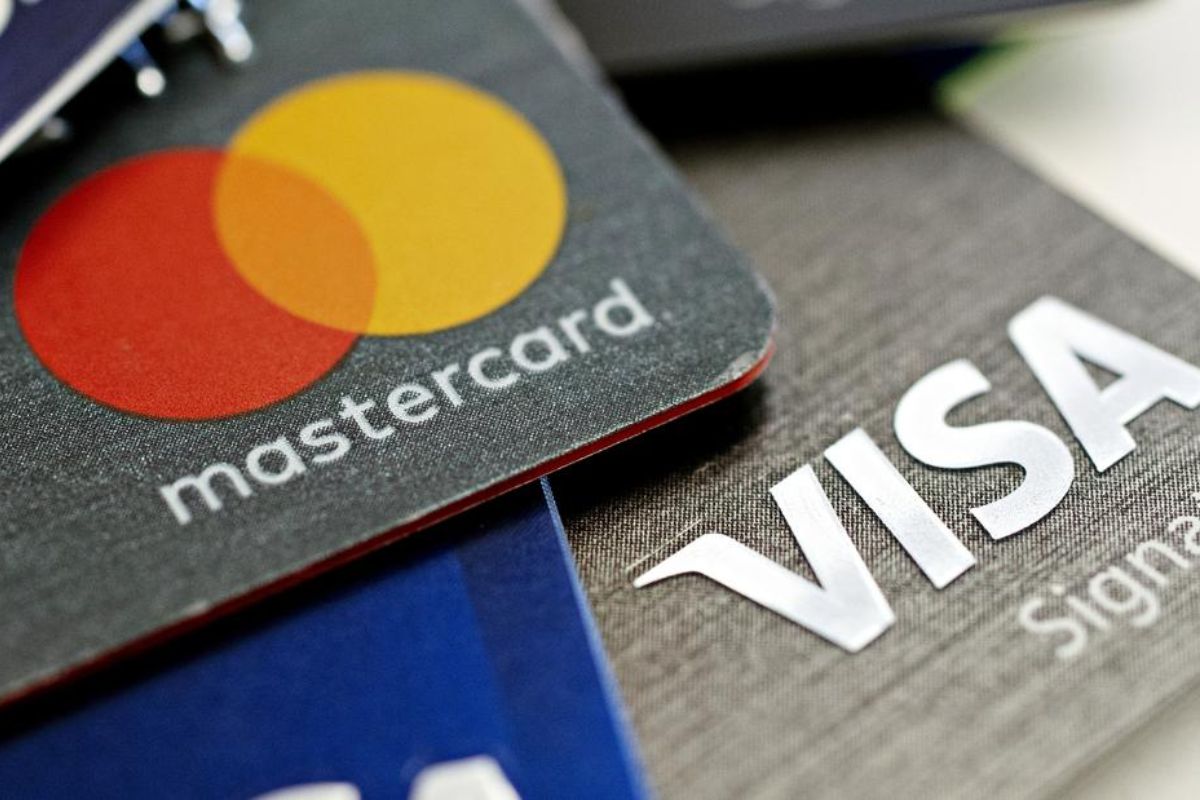Major Credit Card Firms: In a recent development concerning California gun sales, major credit card firms have introduced a tracking code system. This implementation comes as a response to California’s new legislation, aiming to monitor firearm transactions more closely.
The unique merchant codes assigned to gun-related purchases raise questions about the potential implications on gun crime statistics and the broader political landscape surrounding gun control measures. As this initiative unfolds in California, the debate over the necessity and effectiveness of such tracking mechanisms gains momentum, prompting discussions about the feasibility of a nationwide adoption.
Key Takeaways
- Introduction of distinct merchant codes enhances monitoring of gun sales.
- Specialized tracking codes aid in preventing illicit activities and gun-related crimes.
- California’s proactive stance on tracking codes sets a precedent for nationwide implementation.
- Credit card firms’ adoption of tracking codes reflects a shift towards comprehensive gun transaction oversight.
California Law Spurs Change
The implementation of the new California law has prompted significant adjustments in the financial sector to comply with regulations aimed at enhancing monitoring of firearm and ammunition transactions. Major credit card companies are actively working to develop a specific merchant code tailored for firearm and ammunition retailers to ensure adherence to this legislation.
The law, designed to facilitate the tracking of potentially suspicious gun purchases, mandates that banks have the capability to monitor these transactions closely and promptly report any irregularities to law enforcement authorities.
This legal requirement has set in motion a series of changes within the financial industry, compelling institutions to reevaluate their transaction monitoring systems and procedures. Banks and credit card companies are now under pressure to revamp their protocols to incorporate the necessary tracking mechanisms for firearm and ammunition sales.
This newfound focus on enhancing oversight and compliance underscores the gravity of the issue at hand and the importance of stringent regulatory measures in monitoring firearm-related transactions.
Merchant Codes for Tracking
The introduction of distinct merchant codes dedicated to firearm and ammunition transactions is a critical development in enhancing tracking capabilities within the financial sector. These unique codes allow for more precise monitoring of purchases related to guns and ammunition, providing valuable insights into consumer behavior and market trends. Here are three key aspects to consider regarding the implementation of these specialized codes:
- Improved Data Analysis: The creation of specific codes for firearm and ammunition transactions enables financial institutions to segregate this data effectively. This separation allows for more targeted analysis and reporting on trends within the firearms industry.
- Enhanced Compliance Monitoring: With dedicated codes for gun purchases, regulatory bodies can more efficiently monitor compliance with firearms laws and regulations. The ability to track these transactions separately enhances oversight and ensures adherence to legal requirements.
- Increased Transparency: By introducing distinct codes for firearm sales, there is a greater level of transparency in financial transactions related to guns and ammunition. This transparency can help address concerns regarding the tracking of gun sales and support efforts to prevent illegal activities in this sector.
Potential Impact on Gun Crime
Also Read: Fast Food Workers in California Unite to Establish a Statewide Union
Amid rising concerns over gun-related crimes, the introduction of specialized tracking codes for firearm and ammunition transactions is poised to revolutionize the monitoring and prevention of illicit activities in this sector.
Gun control activists view this code as a crucial tool in identifying suspect purchases and combating gun-related crimes, particularly in the context of mass shootings.
Approved internationally in 2022, this tracking code enables banks to flag suspicious transactions akin to how they handle other financial crimes.
Political Landscape
In the realm of firearm legislation, the political landscape surrounding the implementation of tracking codes for gun sales is marked by stark divisions between states.
- California’s Pro-Code Stance: California stands out as a trailblazer by enacting a law mandating the adoption of tracking codes by firearm retailers by May 2025, showcasing a proactive approach to gun sale monitoring.
- Republican-Controlled Opposition: Several Republican-controlled states oppose the tracking code, reflecting a broader ideological divide on gun regulations and privacy concerns related to monitoring firearm purchases.
- Regulatory Uncertainty: Credit card executives find themselves navigating a complex web of regulations and conflicting state laws, balancing compliance requirements with potential backlash from states that have banned the tracking code, creating a challenging environment for financial institutions involved in processing gun transactions.
This intricate tapestry of differing state stances, political ideologies, and regulatory challenges underscores the complexity of implementing tracking codes for gun sales in the United States.
Call for Nationwide Implementation
Given the growing push for a unified approach to firearm transaction monitoring, especially in the wake of California’s pioneering stance on tracking codes, there is a heightened call for nationwide implementation of this system to address gun violence concerns.
Senator Elizabeth Warren and advocacy group Guns Down America are among those urging credit card companies to adopt the tracking code nationally. The emphasis lies on the potential of such a system to prevent gun violence and mass shootings by providing a consistent monitoring mechanism.
Advocates stress the need for federal legislation to resolve conflicts between states and ensure uniformity in implementing the code across the country. By advocating for a nationwide rollout, proponents seek to create a more cohesive and effective strategy for tracking gun sales, aiming to enhance public safety and reduce the risks associated with firearms.
The call for nationwide implementation reflects a broader effort to address gun violence comprehensively and proactively on a national scale.
Conclusion Of Major Credit Card Firms
The implementation of tracking codes by major credit card firms for California gun sales is a direct response to state law requirements. This system allows for better monitoring and tracking of firearm purchases, potentially impacting gun crime rates.
The political landscape surrounding this issue remains complex, with calls for nationwide implementation echoing across various stakeholders. The move towards increased transparency and accountability in firearm transactions is a crucial step in addressing public safety concerns.
Our Reader’s Queries
Is visa mastercard pausing work on code aimed at tracking gun purchases?
Visa and Mastercard Halt Progress on Code Meant for Monitoring Gun Purchases. Examining handguns at a West Point, Kentucky store, a customer finds that Visa Inc. and Mastercard Inc. have chosen to temporarily suspend the implementation of a strategy that advocates had anticipated could monitor firearm transactions and contribute to reducing gun violence.
What is the International Organization for Standardization Gun Code?
In September 2022, the International Organization for Standardization (ISO) introduced a fresh MCC, a four-digit code designed to categorize merchants based on their business purpose, specifically for firearm and ammunition retailers.
Why don t credit cards have tracking?
The smart chip, also referred to as an EMV chip, is not a tracking system, and it does not enable the tracking of the physical location of a credit or debit card. This embedded chip generates dynamic data for each transaction, significantly reducing the risk of criminals stealing or cloning your information.


